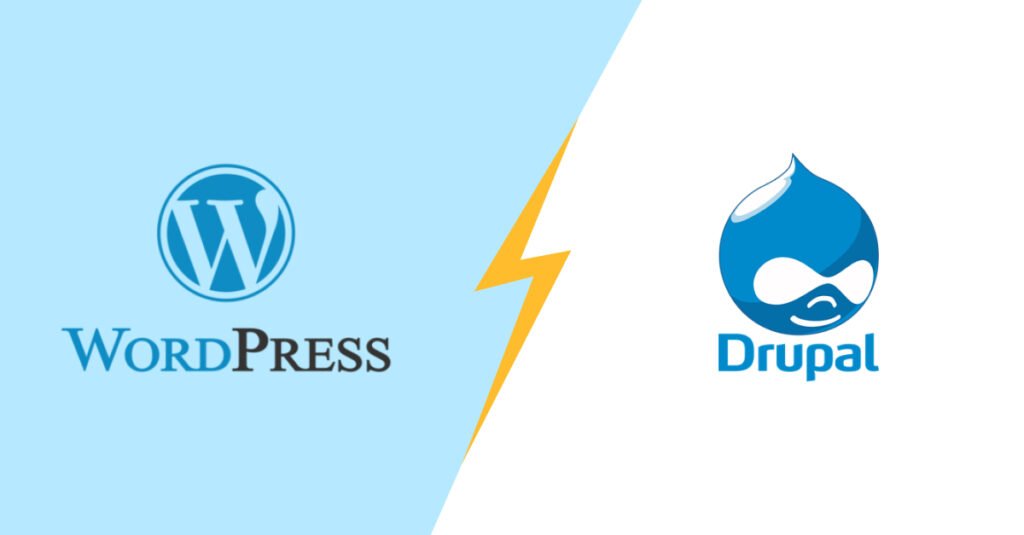
Choosing the right content management system (CMS) for your enterprise website can feel like a daunting task. WordPress and Drupal are two of the most popular CMS options, but each has its own strengths and challenges. In this blog, we’ll explore these platforms in-depth, focusing on key factors like security, scalability, cost-efficiency, and delivery speed, so you can make an informed decision for your business.
- Security – Protecting Your Enterprise Data
- Scalability
- Lower Costs, Higher ROI
- Launch Faster Without Compromising Quality
1. Security – Protecting Your Enterprise Data
When it comes to enterprise-level websites, security is non-negotiable.
- Drupal: Known for its strong security framework, Drupal is often the CMS of choice for industries like government and finance. However, it requires constant manual updates and specialized developers to keep security airtight. If you have a skilled technical team, Drupal’s customizable security options can be a good fit.
- WordPress: Contrary to common misconceptions, WordPress offers enterprise-grade security solutions. Tools like Wordfence and managed hosting services such as WP Engine provide real-time monitoring, automated updates, and proactive threat detection. The best part? These tools make security manageable even for non-technical teams.
So if you’re looking for robust security with fewer headaches, WordPress delivers protection without adding complexity.

Secure and reliable websites for your enterprise
2. Scalability
Enterprise websites must handle growth effortlessly, whether it’s an increase in traffic, additional features, or multi-site setups.
- Drupal: Drupal excels in managing complex architectures, like multi-site installations and large-scale applications. Its flexibility makes it a strong choice for businesses with highly specific needs, but it comes at the cost of requiring advanced technical expertise.
- WordPress: Designed for scalability, WordPress easily handles high traffic with plugins like WP Rocket and performance optimizers such as Cloudflare CDN. Managed hosting providers like Kinsta and SiteGround ensure seamless scaling without downtime.
Companies like Sony Music rely on WordPress to support millions of visitors without sacrificing performance.

CMS that grows with your business!
3. Lower Costs, Higher ROI
For enterprises, every dollar saved on development and maintenance can be reinvested in innovation and marketing.
- Drupal: The high upfront cost of custom development and ongoing expenses for maintenance can make Drupal a pricey option. Businesses often need to hire specialized developers to handle updates and troubleshoot issues.
- WordPress: With 30–40% lower development costs, WordPress stands out as the budget-friendly choice. Its extensive library of free and paid plugins, affordable themes, and large developer community reduce expenses without sacrificing quality.
The New York Times transitioned parts of their platform to WordPress, significantly reducing costs while maintaining a high-quality digital experience.

Save your business time and money with WordPress!
4. Launch Faster Without Compromising Quality
Time-to-market is critical for enterprises. A CMS that allows you to launch quickly can give you a competitive edge.
- Drupal: Due to its complexity and need for custom development, Drupal projects often take longer to complete. If your organization requires highly bespoke solutions, this longer timeline may be worth the wait.
- WordPress: WordPress shines with its ready-to-use themes, extensive plugin ecosystem, and a vast developer network. These resources significantly speed up the development process without compromising functionality.
Why It Matters? Enterprises using WordPress report an average 25% reduction in time-to-launch compared to Drupal.

Need your site live ASAP?
Why Enterprises Choose WordPress?
While both WordPress and Drupal have their merits, WordPress consistently stands out as the secure, scalable, cost-effective, and user-friendly solution for enterprise websites. It’s no wonder companies like Disney, Sony, Microsoft, and The New York Times trust WordPress to power their digital presence.
“Choosing between WordPress and Drupal is like deciding between a Swiss Army knife and a custom-built toolkit. Drupal’s toolkit might be perfect for fixing a spaceship, but WordPress is the Swiss Army knife that handles everything from peeling apples to cutting through red tape—and it’s much easier to carry around.”
– Pratik Jain, Senior WordPress Developer
Let’s quickly peep into this:
| Factor | Drupal | WordPress |
| Security | Secure but labor-intensive. | Secure with automated tools. |
| Scalability | Excels in complex setups. | Effortlessly scalable. |
| Cost Efficiency | High development and maintenance. | Budget-friendly and flexible. |
| Delivery Speed | Slower due to complexity. | Faster, ready-to-use solutions. |
Which CMS does your enterprise use—WordPress or Drupal—and why?
No Comments yet!